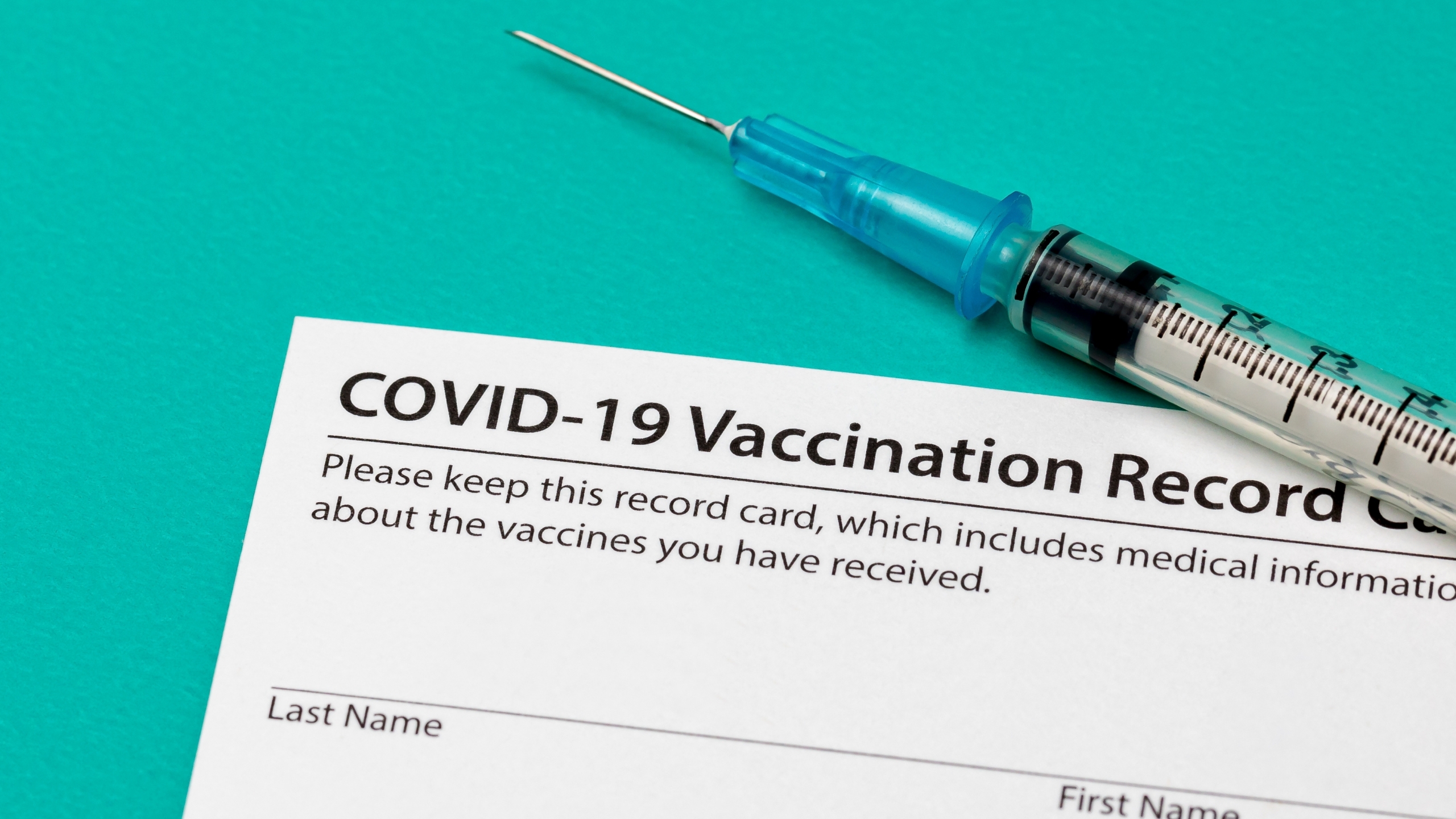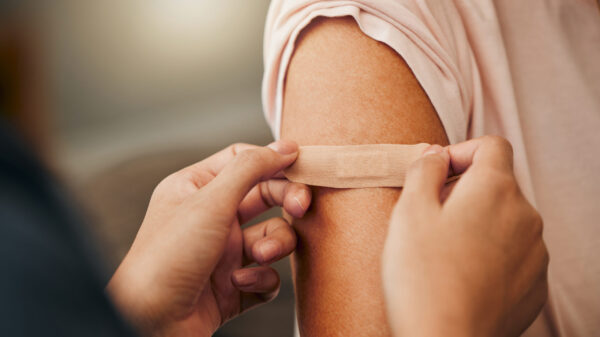Alabama State Health Officer Dr. Scott Harris is hopeful that a third COVID-19 vaccine from drug maker Johnson & Johnson could soon come to market, and doesn’t have the same ultra-cold storage requirements as the current two vaccines.
The Johnson & Johnson vaccine is also a single shot vaccine, unlike the two-dose Moderna and Pfizer vaccines.
“Which opens up a lot of doors for us,” Harris told reporters in a phone call Thursday. “And there are a lot of logistical problems that get solved by having a single dose vaccine.”
Harris said the Johnson & Johnson vaccine has been found to be 72 percent effective in preventing infection, compared to the Moderna and Pfizer vaccines’ 95 percent effectiveness.
However, all three vaccines are identical at preventing serious illness, hospitalization and death, Harris said.
“This is a vaccine that prevents deaths, and prevents even serious illness and hospitalization at exactly the same rate as the other vaccines, so the best vaccine is the one that you have offered to you,” Harris said. “Please don’t shop for them, and please don’t wait around because you think one is better than another”
It’s not yet clear how much of the new vaccine Alabama will be apportioned, Harris said, but to date, for every 1 million doses in the federal government’s pool, Alabama has gotten approximately 15,000 doses.
Johnson & Johnson has said it plans to deliver 20 million doses by the end of March, and to have delivered 100 million doses by the end of June.
The U.S. Food and Drug Administration, in data released Wednesday, said the Johnson & Johnson vaccine is safe and effective. The data is to be used by the FDA’s Vaccines and Related Biological Products Advisory Committee, which is to meet Friday and determine whether to recommend the FDA approve an emergency use authorization. Final approval could come by early next week, Harris said.
When it comes to distributing the vaccine across the state, Harris said the Alabama Department of Public Health does so based on an area’s eligible population and by using the social vulnerability index, a planning tool from the Centers for Disease Control and Prevention that uses various markers to identify an area’s healthiness, access to care and resilience, Harris explained.
Some of Alabama’s most disadvantaged counties, as identified by the social vulnerability index, are in the Black Belt region, Harris said, adding that the state and county health departments are working to make sure those counties are covered, regardless of their eligible population.
“We go out of our way to recruit additional providers in those communities to make sure that there’s other places for people to get the vaccine,” Harris said. “We’re making sure all our county health departments are given the vaccines actively in those counties. We’re doing that in every county, but we’re particularly making sure that we allocate enough to cover the eligible populations in those counties as well.”
In Alabama, approximately 12 percent of the administered vaccines have gone to Black people, while 54 percent were administered to white people, according to ADPH’s dashboard.
Black people are at greater risk from complications and death as a result of coronavirus, according to the CDC, and a Kaiser Family Foundation report notes that while Black people make up just 27 percent of Alabama’s population, they account for 29 percent of all cases and 31 percent of all deaths in the state.
“Our goal is certainly much higher than that,” Harris said of the state’s low percentage of vaccinations among Black people. “Although, that’s more than twice the national average.”
A CDC report on Feb. 1 noted that race and ethnic data were available for 51 percent of people vaccinated in the U.S. between Dec. 14 and Jan. 14. Of the data available, 60 percent of those vaccinated were white, 11 percent were Hispanic and five percent were Black.
The state’s data shows that 31 percent of vaccinations were among races that were unknown or not reported.
“We’re still trying very hard to figure out ways to collect that data,” Harris said, adding that the state requires providers to send that data to the state but that it doesn’t always happen.
Harris noted that in each of the last three weeks, the state has administered more than 100,000 doses weekly. As of Wednesday, the state had administered approximately 87 percent of all doses shipped to state providers, according to ADPH’s dashboard.
In other positive news, Walmart announced last week plans to add another 17 locations in the state into the federal COVID-19 vaccine program, Harris said. To check availability and schedule to be vaccinated, visit Walmart’s website here.
Additionally, the CVS pharmacy chain has approved ADPH’s request to add CVS locations in areas found to be most in need based upon the social vulnerability index into the federal pharmacy vaccination program, Harris said. CVS locations in Camden, Evergreen, Greensboro, Bayou La Batre, Jackson, Lanett, Moulton, Tuskegee and Union Springs will be administering vaccines, he said.
For those currently eligible for vaccination, visit CVS.com or call 800-746-7287 to schedule a vaccination.













































